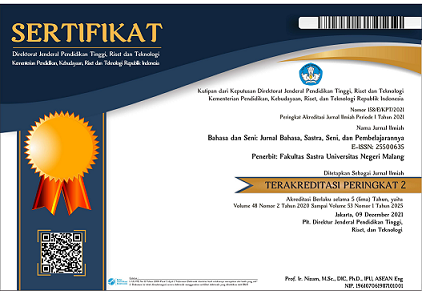KONTEKSTUALISASI BAHASA QUR’ANI DALAM KOMUNIKASI DAKWAH: STRATEGI TINDAK TUTUR TRANSFORMASI PESAN- PESAN KEAGAMAAN
Abstract
The success of dakwah as communication activities emphasizing on religious behavior transformation into the society, cannot be separated from the aspects of the language. Islam has taught us about the universal language of dakwah, as mentioned in the Qur'an. Dakwah language based on the Qur'an is characterized by saying something good so that it can imprint on the audience soul. Moreover, it must be a wise, a kind, an easy to understand and sacred words. This paper discusses the organization of dakwah language based on the Qur'an by taking communication strategies that are relevant to its contexts. The use of contextualization in this study means that the activities must consider its situation, including: "who speak, what language, to whom, and to what end". The dakwah method described is expected to improve the effectiveness of dakwah so that religious behavior is successfully transformed into the society
Full Text:
PDFRefbacks
- There are currently no refbacks.

This work is licensed under a Creative Commons Attribution 4.0 International License.

Dear Sir/Madam
We appreciate your continued confidence and trust in Bahasa dan Seni: Jurnal Bahasa, Sastra, Seni, dan Pengajarannya (JBS). In order to enhance the service, readability, and quality of JBS publications, we will be transitioning to a new website, https://citeus.um.ac.id/jbs, in collaboration with Digital Commons (Elsevier) starting in July 2024.
Sincerely
Yusuf Hanafi
(Editor in chief)















2.png)